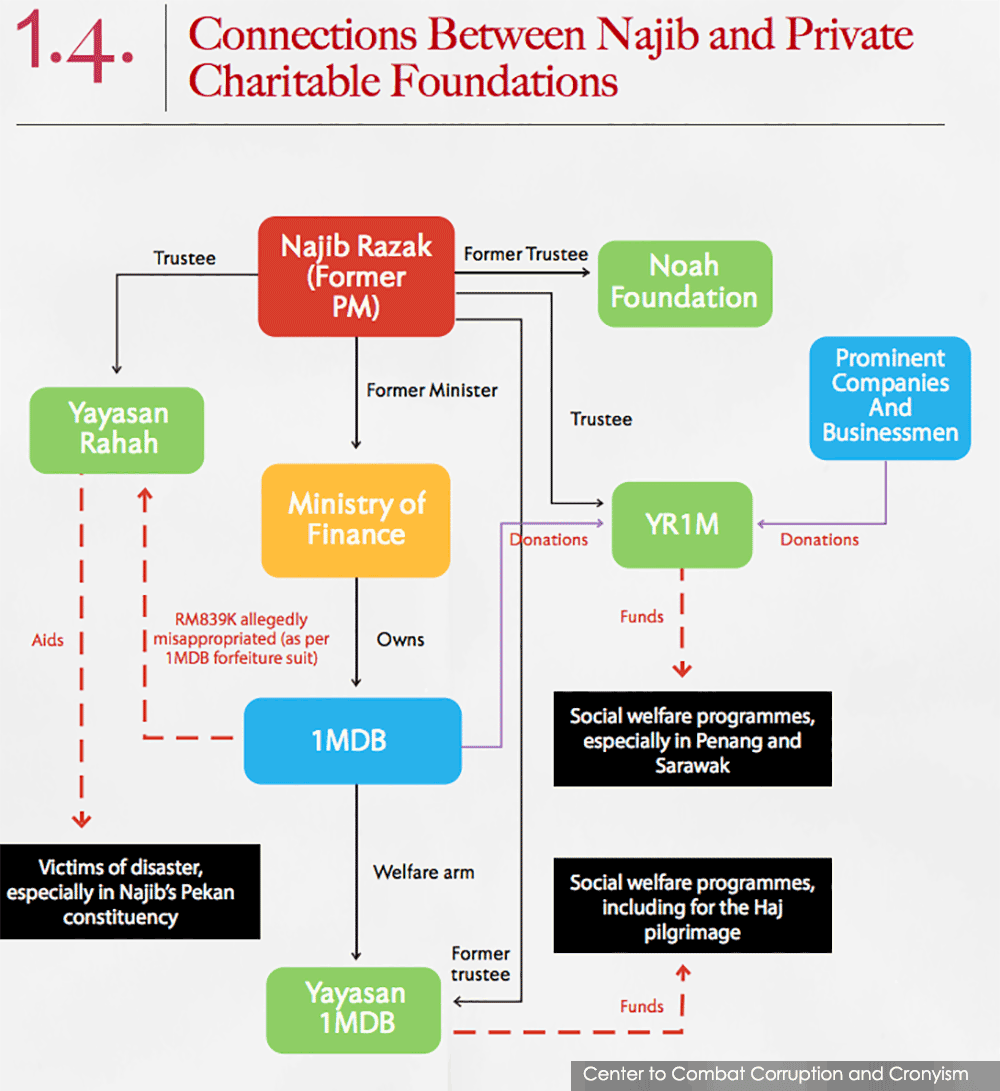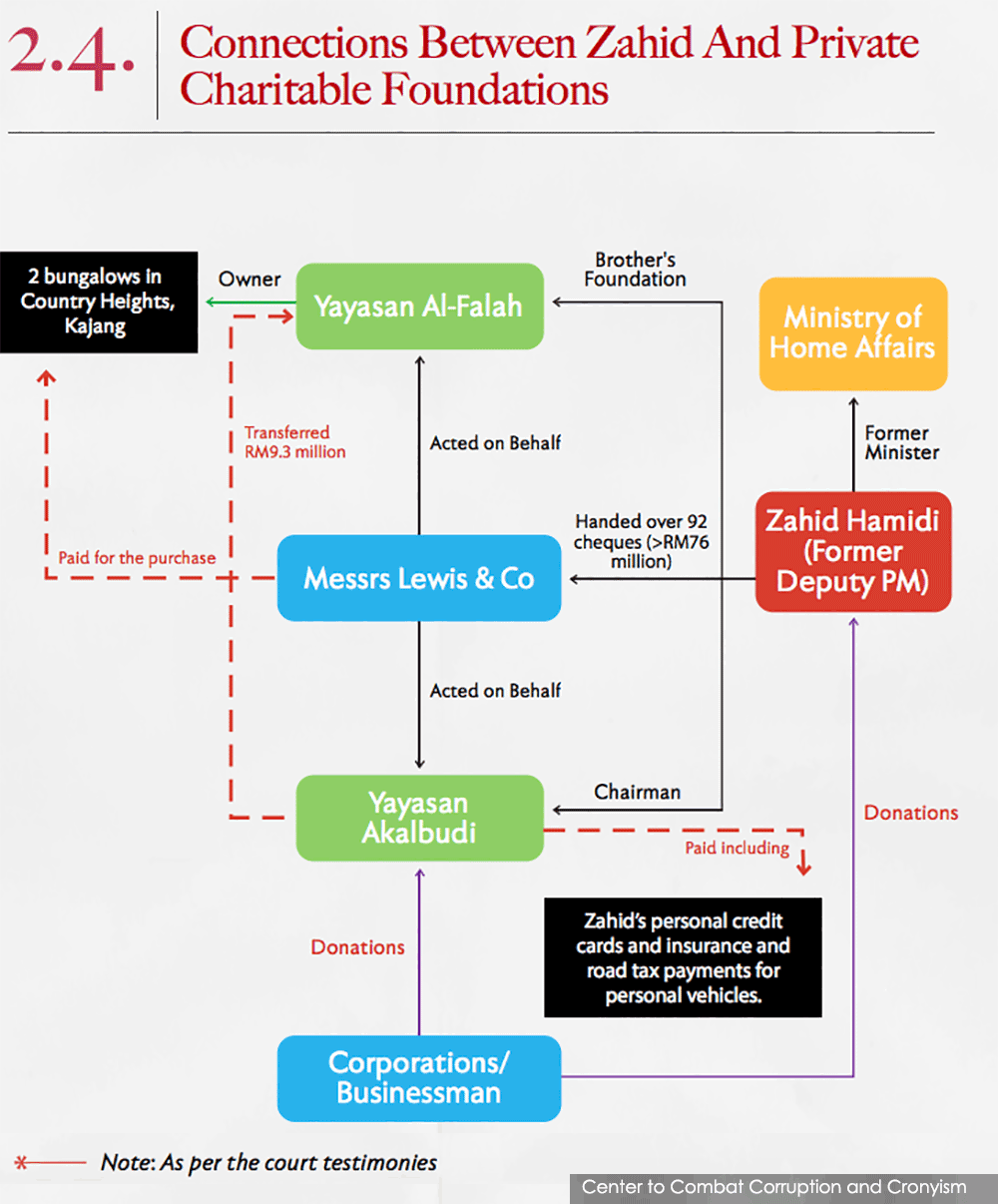Foundations are often set up for charitable causes but weaknesses in governance have made them vulnerable to abuse, a report by the Center to Combat Corruption and Cronyism (C4) shows.
One example is how some foundations, called yayasan in Malay, have featured prominently in the corruption trials of several high-profile politicians.
Citing reported details from these ongoing trials, C4 found that politicians use foundations - whether private, family-run or government-linked - to raise money from private corporations or government-linked companies (GLCs).
The foundations then serve as “war chests” to buy grassroots support, fund elections or as conduits for personal enrichment.
This is due to the absence of scrutiny by government authorities or any legal requirement to publicly disclose where the funds have come from and what they are used for.
“Through these foundations, influential politicians and political parties have huge war chests, leading to the practice of patronage politics, while vote-buying and treating have become commonplace during party and general elections.
“The playing field for party posts is also made unequal, allowing incumbents to remain in power for a prolonged period,” states the 'Foundations and Donations: Political Financing, Corruption and the Pursuit of Power' report.
The report features several politicians and well-known figures, along with a list of foundations that they are or were linked to.
The case studies include those of Umno president Ahmad Zahid Hamidi, former prime minister Najib Abdul Razak, Najib’s spouse Rosmah Mansor, former federal territories minister Tengku Adnan Tengku Mansor, former Sabah chief minister Musa Aman, former Tabung Haji chairperson Abdul Azeez Abdul Rahim and former PAS deputy president Nasharudin Mat Isa.
Money politics hampering reform
According to the report, Prime Minister Muhyiddin Yassin, opposition leader Anwar Ibrahim and Pandan MP Dr Wan Azizah Wan Ismail also have foundations linked to them.
The report states that previous BN and Pakatan Harapan governments failed to implement political financing laws to curb the abuse of the foundations.
The present Perikatan Nasional administration, meanwhile, has not announced any intention to regulate political financing.
“A key roadblock to legislation on political financing is the need for money to secure or consolidate power...
“If a sea change to this endemic corruption and excessive party competition is to occur, political financing reforms, as well as a review of the use of foundations in politics, are imperative,” the report says.
Launched today, the report was authored by political economist Edmund Terence Gomez and C4 senior researcher Lalitha Kunaratnam.
- Mkini





No comments:
Post a Comment
Note: Only a member of this blog may post a comment.